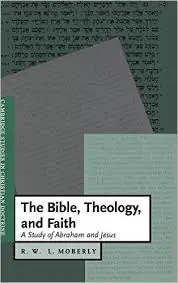

The Bible, Theology, and Faith: A Study of Abraham and Jesus (Cambridge Studies in Christian Doctrine)
Pages
276
Publisher
Cambridge University Press
Published
8/7/2000
ISBN-13
9780521772228
R.W.L. Moberly's aim is to "read the Bible for all it is worth," by connecting the minutiae of biblical scholarship with the big questions of God and human life. Classic Christian understandings of what is necessary to speak validly about God are used to set a context for modern linguistic and historical interpretation so as to produce a postmodern understanding of biblical interpretation. Detailed studies of Abraham's sacrifice in Genesis 22, the story of the journey to Emmaus (Luke 24), and the Christology of Matthew's Gospel integrate theory with practice.
- Contents
- 1. The Bible, the question of God, and Christian faith
- 2. Christ as the key to scripture: the journey to Emmaus
- 3. Abraham and God in Genesis 22
- 4. Ancient and modern interpretations of Genesis 22
- 5. Genesis 22 and the hermeneutics of suspicion
- 6. Jesus in Matthew's Gospel as Son of God
- 7. Summary and prospect.
Reviews
In this monograph, the author proposes and works out a theory of Christian hermeneutics grounded in the conviction that the Bible, foundation and primary resource for Christian faith and theology, can and must be interpreted to engage the truth about God and human life, as focused in Jesus, to which it witnesses. In chapter 1, Moberly situates his study within an account of biblical interpretation as it touches specifically on the question of God, unfolding the issue in three stages. The author’s views concerning how Christian biblical interpretation ought to proceed, by whom, in what context and to what end, presented in stages one and two, prepare for stage three, where Moberly enunciates his four hermeneutical presuppositions. The first relates to the character and cultural context of the interpreter and underscores the necessity of personal engagement with the text. The second is that attention to the role of symbolism and metaphor in religious language is necessary to negotiate what the biblical text has to say about God. The third presupposition, that the text is mystery, is conceived as an invitation to probe further into its meaning through a variety of disciplines. Finally, the interpretation of the text must be set within the context of the “rule of faith”, i.e., those formulations which express the dynamic reality of the Church where God and humanity are understood definitively in Christ. The exposition of the author’s hermeneutical theory begins in chapter two through an analysis of Luke 24:17-35. As interpreted, this text provides the warrant for the Christological interpretation of Israel’s scriptures which are not fully understood apart from Jesus, who is not fully understood apart from Israel’s scriptures (p. 61).
[Full Review]
